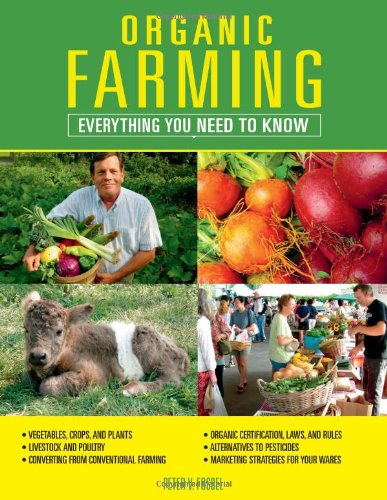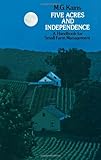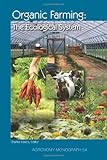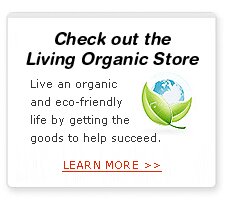Living Organic Online Store
Organic Farming: Everything You Need to Know
Going organic may be a clear way of getting back to basics—and getting away from the havoc chemicals can wreak on our health and our environment—but the basics themselves may not be so clear. How to begin? What kind of fertilizer and feed are allowed? Is there natural pest management? What does certification entail? And is this the way to go? This book covers the basics and then some. Whether you’re thinking of starting an organic farm or making the transition to organics, whether you’re growing crops or raising animals, you’ll find everything you need to know in these pages—from getting started to developing a marketing strategy. A list of resources also points the way to other books, websites, and organizations focusing on every aspect of organic farming, including state standards and more information.
Related Products
Five Acres and Independence: A Handbook for Small Farm Management
This classic of the back-to-the-land movement is packed with solid, timeless information. Written by a renowned horticulturist, it has taught generations how to make their land self-sufficient, with explanations of organic farming techniques and reliable advice on other topics, including irrigation, livestock, crops, greenhouses, fertilizers, much more. 95 figures.
Organic Marin: Recipes from Land to Table
"Now more than ever, we need to make decisions about cooking and eating that support the kind of agriculture that takes care of the land we hold in trust for future generations. This beautiful book, full of recipes for delicious, seasonal meals, is a tribute to the Marin County farmers, artisans, and cooks who uphold that stewardship and provid for our future." --Alice Waters, Chez Panisse Restaurant "Organic Marin" gives you a taste of what has become one of America's most vibrant local food scenes; indeed, this beautiful book is the next best thing to eating there." --Michael Pollan, author of "The Omnivore's Dilemma and In Defense of Food" "Every society is a direct reflection of the status of its soil . . . Everything comes from soil. We are nothing without it." --Helge Hellberg, executive director of Marin Organic "Organic Marin" is more than a regional cookbook. It also represents an organic movement reverberating around the globe, demanding a more thoughtful, less wasteful approach to life. The connection between field and farmer, land and table, and food and family translates to the passionate belief that food fosters community. And nowhere is this connection more apparent than in Marin County, California, the birthplace and standard-bearer of American organic farming. In "Organic Marin," 16 of America's most esteemed organic farms share their stories and philosophies alongside 50 mouthwatering organic recipes organized by season and contributed by 25 of the San Francisco Bay Area's most popular organic restaurants. With recipes for Heirloom Tomato Flat Bread, Seared Ahi Tuna with Asian Slaw, Chicken Fra Diavolo with Fennel and Dandelion Salad, Double ChocolateBread Pudding, and much more, anyone can create the delicious dishes featured in this beautiful and inspiring organic cookbook. Proceeds of "Organic Marin" support Marin Organic's school lunch program, which serves 12,000 lunches a week with food grown in Marin County.
Organic Farming: The Ecological Systems (Agronomy Monograph)
Worldwide sales of organic products have expanded 10 to 20% per year for the past decade, increasing interest in organic farming as a profitable and more environmentally benign alternative to conventional production. To participate in the current food system, it is imperative that agronomists and horticulturists master the practices, systems design, certification process, and details of the organic farming sector. Combining farmer experience and wisdom with the best that science has to offer can help us better understand organic systems and how to design them to meet human needs and preserve an environment where we would like to live. This book represents a current look at what we know about organic farming practices and systems, primarily from the U.S. and Canadian perspectives. The discussion begins with history and certification, ecological knowledge as the foundation for sustaining food systems, and biodiversity. The next chapters address crop-animal systems; forages, grain, oil seed, and specialty crops; organic cropping and soil nutrient needs; and vegetation and pest management. Readers will next learn about marketing organics, organic foods and food security, and education and research. The book concludes with a survey of the future of organic farming and a perspective on the agricultural industry and the future of the rural sector.The American Society of Agronomy, Crop Science Society of America, and Soil Science Society of America are prominent international scientific societies headquartered in Madison, Wisconsin. The Societies specialize in peer-reviewed, high-quality science titles for a wide variety of audiences.Some of the many areas we publish in include:-Soils Methods and Management-Crop Development and Improvement-Agrosystem Management and the Global Food Crisis-Environmental Conservation and Climatology





